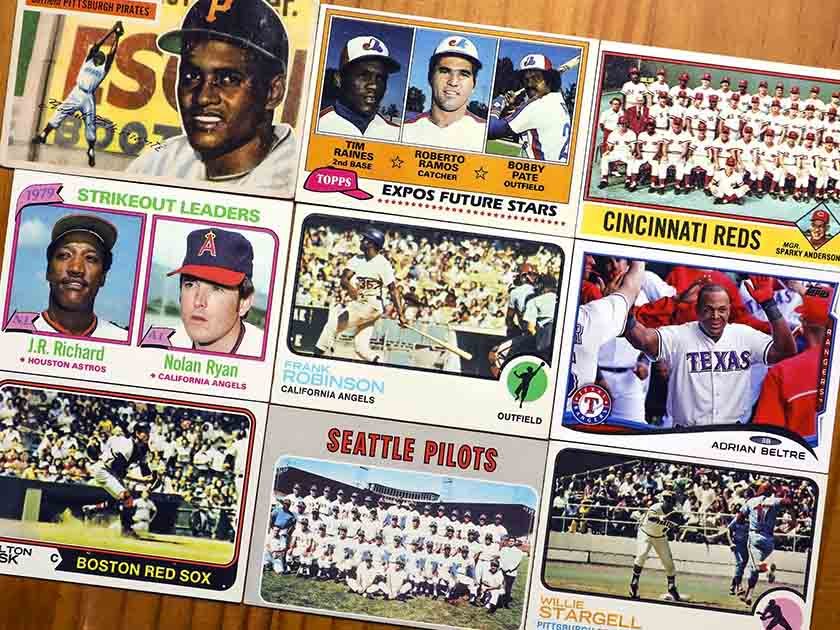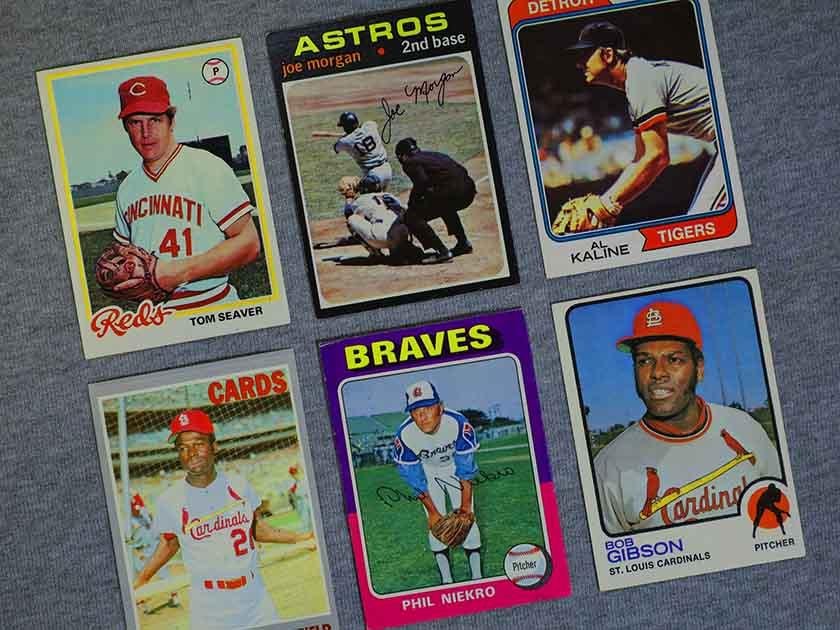Baseball cards have long been regarded as a cherished component of sports memorabilia, with some achieving remarkable prices in the market.
What exactly contributes to the value of a card? This discussion will delve into essential factors such as rarity, condition, and player popularity that significantly influence a card’s worth. The best way to sell baseball cards is also covered, providing guidance on where and how to sell them effectively, from online marketplaces to local shops.
Furthermore, you will discover strategies to maximize your profits. Whether you are a seasoned collector or a newcomer to the hobby, this information offers valuable insights for all.
What Makes a Baseball Card Valuable?
Understanding the factors that contribute to the value of a baseball card is essential for collectors seeking to maximize their profits. Elements such as rarity, condition, and the popularity of the player significantly influence the card’s market demand.
Furthermore, factors like grading services and pricing analysis are crucial in determining the card’s value. Regardless of whether one possesses rare, vintage, or modern cards, comprehending these aspects is vital for effectively selling baseball cards through various platforms, including online marketplaces and card shows.
Rarity
Rarity is a critical factor in determining the value of baseball cards, significantly influencing collector interest and market demand.
When a card is classified as rare, it often generates considerable enthusiasm within collector communities, thereby enhancing its desirability. For example, cards such as the T206 Honus Wagner are regarded as some of the most prized possessions in the hobby, commanding exceptionally high prices due to their limited availability.
The narratives surrounding such cards frequently ignite speculation and passion among enthusiasts, resulting in increased competition during auctions. The dynamic relationship between rarity and demand is key to understanding the best way to sell baseball cards, as collectors not only seek to acquire pieces for their collections but also remain aware of the potential for future investment.
As rare cards circulate within the market, the excitement they generate can lead to significant price increases, reflecting a market that continuously evolves based on collector sentiment.
Condition
The condition of a baseball card is critical to its valuation, as various grading services provide a standardized assessment that significantly influences collector interest and pricing.
This evaluation often dictates the marketability of the card, with high-grade cards typically commanding substantially higher prices than those exhibiting noticeable wear. Different grading systems, such as PSA, BGS, and SGC, utilize rigorous criteria to assess factors including surface imperfections, corner sharpness, and centering.
It is essential for collectors to recognize that a card’s condition directly affects both its perceived value and its desirability among potential buyers.
When contemplating the sale or expansion of a collection, a comprehensive understanding of these grading intricacies can facilitate more informed decisions, ultimately leading to prudent investments in condition valuation and effective assessments of card quality.
Popularity of the Player
The popularity of a player associated with a baseball card significantly affects its market value, as collector communities tend to prefer cards featuring well-known athletes.
This relationship implies that fluctuations in a player’s on-field performance or public image can result in rapid changes in the demand for their cards. For example, when an athlete reaches a career milestone or attracts media attention, the interest in their cards can surge, thus increasing their valuations.
Conversely, a decline in performance, injuries, or off-field controversies can lead to decreased demand, negatively impacting card prices.
Cards that are in high demand often become focal points in numerous collections, stimulating competitive buying behavior among enthusiasts eager to acquire a piece of sports history.
Where to Sell Baseball Cards?
When considering the sale of baseball cards, it is essential to be aware of the most effective platforms available, as they can greatly influence both the selling experience and overall profitability.
The best way to sell baseball cards can vary depending on your preferences, with options such as online marketplaces like eBay, auction sites, local shops, and sports memorabilia shows, each offering distinct advantages and catering to different demographics of collectors.
A thorough understanding of the strengths associated with each selling method can assist in selecting the most appropriate approach for inventory management and the sales process.
Online Marketplaces
 Online marketplaces, including eBay and various selling applications, offer baseball card collectors a significant platform to sell their cards efficiently while reaching a broad audience.
Online marketplaces, including eBay and various selling applications, offer baseball card collectors a significant platform to sell their cards efficiently while reaching a broad audience.
These platforms enable sellers to showcase their cards through well-crafted listing descriptions and underscore the importance of user-generated content, which can substantially enhance credibility.
When potential buyers observe reviews and ratings from fellow collectors, it cultivates trust and encourages active engagement. A thorough understanding of SEO techniques can further improve the visibility of listings, ensuring they rank prominently in search results.
Additionally, implementing effective pricing strategies, such as competitive pricing or card bundling, can attract more buyers, resulting in expedited sales and increased profitability for sellers operating within these dynamic online communities.
Auction Houses
Auction houses provide a traditional and effective method for selling valuable baseball cards, frequently attracting serious collectors who are willing to pay premium prices for high-demand items.
Navigating the auction process can be complex – however, understanding key strategies can significantly enhance the outcomes. Bidders should familiarize themselves with the auction schedule and establish a clear budget.
Both sellers and buyers can benefit from researching recent sales of comparable cards. For individuals seeking to consign their items, selecting a reputable auction house is essential, as it affects not only visibility but also the terms of sale.
Sellers should also be cognizant of the selling fees associated with these platforms, which can vary and ultimately influence profit margins. Calculating these costs in advance enables sellers to make informed decisions regarding their bidding strategies.
Local Card Shops
Local card shops can serve as a dependable venue for selling baseball cards, offering direct sales opportunities and facilitating personal interactions with fellow collectors.
These establishments foster a dynamic sense of community, where enthusiasts can exchange their passions and knowledge. Engaging with local buyers not only enhances sales potential but also creates valuable networking opportunities among collectors who may be interested in trading or discussing rare finds.
By understanding and leveraging local demographics, sellers can tailor their offerings to better align with the community, resulting in increased customer loyalty.
Local shops frequently host events, providing sellers the opportunity to showcase their collections and connect with potential buyers in a relaxed environment, ultimately enriching the overall experience for all participants.
Sports Memorabilia Shows
Sports memorabilia shows are among the best ways to sell baseball cards, offering a great opportunity for collectors to connect, trade, and showcase their collections in one convenient location.
The dynamic atmosphere at these shows cultivates a sense of community, attracting passionate collectors eager to share their narratives and experiences. Attendees often find themselves enveloped in nostalgia as they navigate through booths filled with rare finds and unique items.
Along with the excitement of trading and purchasing, these events offer invaluable networking opportunities that can foster enduring relationships within the hobby.
Engaging with fellow enthusiasts not only enhances customer interaction but also encourages collaborative ventures, whether through social media groups or hobby clubs. Such personal connections frequently result in stronger community ties, ensuring the continued vitality of the collecting passion.
How to Determine the Value of Your Baseball Cards?
Determining the value of baseball cards necessitates a comprehensive understanding of various factors, including market analysis, grading services, and insights from collectors.
Research the Market
Conducting comprehensive market research is essential for understanding the current trends and values associated with baseball cards, utilizing tools such as price guides and online forums.
By engaging with reputable online communities, collectors can exchange insights and learn from seasoned experts who have navigated the market’s fluctuations. These forums facilitate invaluable discussions on card conditions, rarity, and market trends that extend beyond basic price listings.
Numerous dedicated websites provide interactive price guides that update in real-time, enabling collectors to remain informed about the values of their cards.
Utilizing these resources not only enhances the buying and selling experience but also equips collectors with the necessary knowledge to make informed decisions while expanding their collections.
Get Your Cards Appraised
Obtaining a professional appraisal for baseball cards through established grading services can significantly enhance their market value and provide reliable authentication.
This process involves a comprehensive examination of the card’s condition, as well as an evaluation of factors such as centering, surface quality, and edges. By employing specialized equipment and leveraging expert knowledge, these services can accurately ascertain the grade of a card, which is essential for both collectors and investors.
The growing awareness of card grading services has give the power toed enthusiasts to enter the market with confidence, understanding that authenticated cards command a stronger position in sales and auctions. Ultimately, engaging with professional card appraisal represents a crucial step in securing the true value of valuable collectibles.
Consider the Condition of Your Cards
The condition of baseball cards directly impacts their value, necessitating a thorough assessment and potential grading to optimize pricing.
To effectively evaluate the condition of a card, one should consider factors such as surface wear, corners, edges, and centering. These elements significantly influence the perceived quality of the card, which is crucial when considering the best way to sell baseball cards, as they can lead to substantial differences during resale.
Utilizing professional grading services is often advantageous, as these services provide an impartial appraisal that enhances credibility and attracts serious buyers.
Understanding the impact of grading on condition valuation is crucial – high-grade cards can command exponentially higher prices, thereby informing your selling strategy. Sellers who comprehend these nuances can position their collections more competitively in the market, ultimately maximizing potential profits.
Tips for Maximizing Your Profits When Selling Baseball Cards
To maximize profits in the sale of baseball cards, it is essential to implement strategic selling techniques, capitalize on seasonal trends, and gain a comprehensive understanding of buyer psychology.
Sell Your Cards During Peak Seasons
 Selling baseball cards during peak seasons can substantially enhance profitability, as market demand typically experiences an uptick during specific times of the year.
Selling baseball cards during peak seasons can substantially enhance profitability, as market demand typically experiences an uptick during specific times of the year.
Understanding the optimal timing for sales is crucial for achieving favorable returns. For instance, the off-season for baseball generally witnesses a decline in interest – however, as spring training approaches, both collectors and fans begin to intensify their purchasing activities.
This seasonal trend presents a prime opportunity for sellers to capitalize on high-demand cards, particularly those associated with popular players or notable recent performances.
Significant events, such as the All-Star Game or the World Series, can also stimulate heightened interest, making these moments critical for determining the appropriate time to list cards and maximize earnings.
Bundle Cards Together
Bundling baseball cards can serve as an effective strategy for enhancing profit margins by appealing to customers seeking comprehensive collections.
This approach not only increases the perceived value for consumers but also incentivizes them to make larger purchases in a single transaction, often resulting in higher overall sales volume.
One of the best ways to sell baseball cards is by offering a set that includes rare cards, common cards, and exclusive access to online content, allowing sellers to create an attractive package that caters to the diverse interests of collectors.
Additionally, pricing strategies are critical – offering discounted rates for bundles compared to individual purchases can persuade hesitant buyers. Highlighting the savings and variety included in the bundle can further optimize profits, allowing sellers to effectively engage both casual buyers and dedicated enthusiasts.
Consider Grading Your Cards
Grading baseball cards can significantly enhance their value by providing a professional assessment that appeals to discerning collectors.
By utilizing reputable grading services, collectors can obtain essential insights into the card’s condition, which is a critical factor in determining its market value. A professionally graded card is typically more sought after, as collectors are more confident in purchasing items that have undergone meticulous evaluation.
This increased demand can result in substantial returns on investment, particularly for rare or vintage cards.
Graded cards frequently command higher prices at auctions, offering an incentive for collectors to evaluate their investments more critically. Ultimately, proper assessments of card condition not only improve marketability but also safeguard the integrity of one’s collection.
Be Willing to Negotiate
Being open to negotiation when selling baseball cards can yield more favorable outcomes and strengthen relationships with potential buyers, effectively leveraging buyer psychology.
A thorough understanding of buyers’ mindsets is essential, as they often seek a sense of control and value in their purchases. By employing effective negotiation strategies, such as active listening and demonstrating empathy, sellers can establish a connection that makes buyers feel acknowledged and understood.
Presenting a variety of options and potential discounts can appeal to buyers’ desires for favorable deals, thereby encouraging further engagement.
The best way to sell baseball cards is by reinforcing positive sentiments through storytelling about the cards and their history, which can enhance their appeal and ultimately motivate buyers to finalize the transaction with enthusiasm.
By mastering these techniques, sellers can cultivate trust and significantly enhance their sales success. Scroll to the bottom for more information in our FAQ section.
The best way to sell baseball cards for collectors is to first research the market value of your cards and determine their condition. Then, you can choose to sell them individually through online marketplaces or in-person at card shows, or you can sell them as a collection to a dealer or auction house.
It depends on the value and condition of your cards. If you have rare or valuable cards, it may be best to sell them individually to maximize profits. However, if you have a large collection of lower value cards, selling them as a collection may be easier and more efficient.
Some popular online marketplaces for selling baseball cards include eBay, COMC, and Beckett Marketplace. These platforms allow you to list your cards for sale and connect with potential buyers from all over the world.
When selling baseball cards online, it is important to protect them during shipping. Use top loaders, sleeves, and bubble mailers to keep them safe. You can also consider using tracking and insurance to ensure that your cards arrive safely to the buyer.
You can determine the condition and value of your baseball cards by consulting price guides, researching recent sales of similar cards, and getting them graded by a professional grading company. It is also helpful to seek the opinion of experienced collectors.
Yes, you can sell your baseball cards at a local card shop. However, keep in mind that the shop may offer you a lower price than what you could get by selling directly to collectors. It is important to do your research and compare offers before making a decision.

